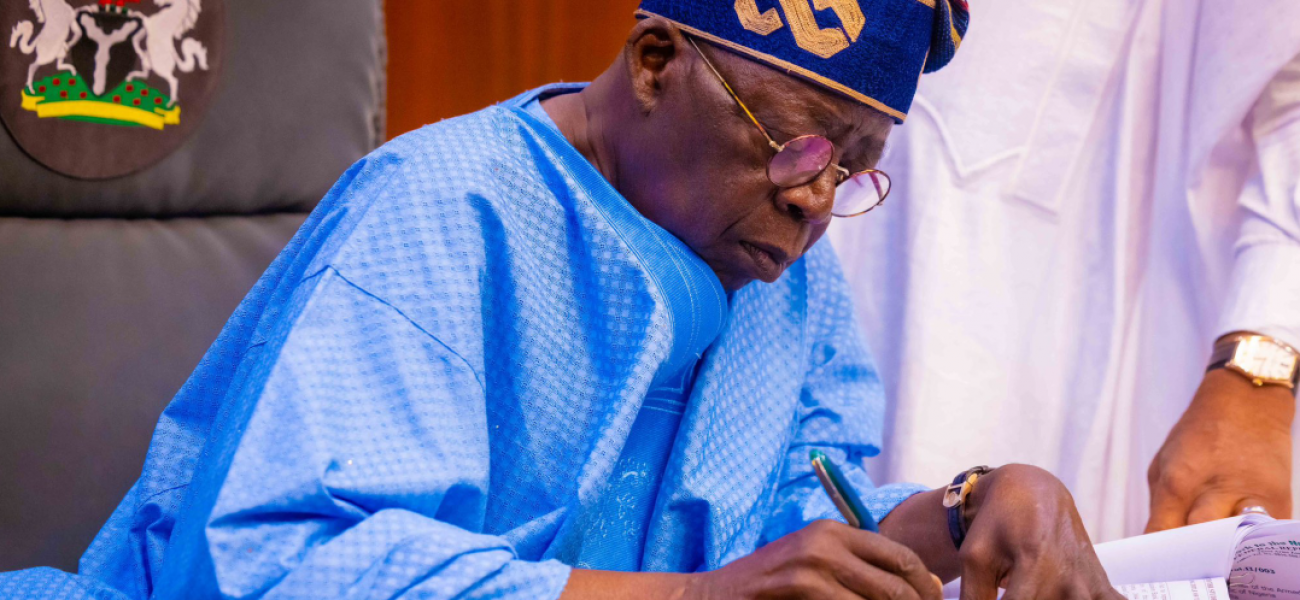President Bola Ahmed Tinubu’s recent request for a $21.5 billion external loan has raised serious red flags about the direction of Nigeria’s fiscal policy, the transparency of legislative processes, and the sustainability of Nigeria’s debt trajectory. This request, the largest single borrowing proposal in Nigeria’s history, is currently before the Senate Committee on Local and Foreign Debt, and is accompanied by additional borrowing proposals, including a $2 billion foreign currency bond programme and a ₦757.98 billion bond to settle outstanding pension liabilities under the Contributory Pension Scheme.
While the presidency has justified these requests as necessary for critical infrastructure, notably the Lagos-Calabar Coastal Superhighway (estimated at ₦15.356 trillion), such rationalizations fail to address more fundamental concerns. Chief among these is the issue of fiscal responsibility, enshrined in the Fiscal Responsibility Act (FRA) 2007. Section 41(1) of the Act clearly stipulates that government borrowing must be strictly for capital expenditure and human development, with explicit terms on the purpose, cost, and expected benefits. Yet, the current loan proposals lack detailed cost-benefit analyses and fail to meet the transparency requirements set out in the law.
Moreover, Nigeria’s public debt has been rising at an alarming rate. According to the Debt Management Office (DMO), as of 31 December 2024, Nigeria’s total public debt stood atN144.7 trillion (approximately $94.2 billion). About 51.4 per cent of the total (N74.4 trillion) is domestic debt while 48.6 per cent (N70.3 trillion) is external debt. This figure excludes additional domestic borrowings projected for the 2025 and 2026 fiscal years. It also does not account for repayments such as the $1.118 billion Eurobond due in November 2025 or ongoing obligations like the annual $30 million Special Drawing Rights charges payable to the IMF, despite the full repayment of the 2020 $3.4 billion Rapid Financing Instrument.
Despite assurances from the Special Adviser to the President on Information and Strategy, Bayo Onanuga that the funds are earmarked for economic development, many Nigerians are rightly concerned about the impact of large-scale borrowing on national priorities. The economy is already strained by high inflation, a weakening Naira, rampant unemployment, and underfunded essential services. Redirecting such vast resources to mega-projects—without a national consensus on urgency and without independently verified feasibility studies—raises questions about project prioritization in the face of dire social needs in education, healthcare, and food security.
Additionally troubling is the legislative process surrounding these loan approvals. The Senate’s decision to consider the proposal during a so-called “working vacation,” where members are operating remotely, casts doubt on the robustness of legislative scrutiny. Nigeria’s democracy relies on open, transparent, and participatory governance. Rushed decisions made without full legislative presence or public hearings erode public trust and diminish institutional accountability.
It is imperative to recognize that borrowing itself is not inherently bad. When done prudently, loans can finance infrastructure that unlocks economic potential. However, reckless borrowing without accountability entrenches cycles of debt and dependency. Critics have raised repeated concerns over the lack of transparency in how previous loans were utilized, with limited visible impact on citizens’ lives. Critics have also strongly opposed the Federal Government’s continued reliance on foreign borrowing, arguing that Nigeria possesses sufficient resources to fund its needs without accumulating more debt. They warn that the new loans could push the country beyond its self-imposed debt-to-GDP threshold, worsening an already fragile fiscal situation.
As a nation with significant human and natural resources, Nigeria must begin to shift its focus toward enhancing domestic revenue generation through plugging leakages in public finance, and fostering private sector growth. Continued reliance on external debt exposes the country to foreign exchange risks and undermines Nigeria’s fiscal sovereignty.
While the need for infrastructure is legitimate, it must not come at the cost of fiscal prudence and democratic oversight. The National Assembly must uphold its constitutional duty by demanding full compliance with the Fiscal Responsibility Act, and ensuring all loan proposals are transparently evaluated against national priorities. The Executive, on its part, must engage citizens in honest dialogue about the trade-offs involved in borrowing. Only through responsible fiscal governance and transparent policymaking can Nigeria secure a sustainable and inclusive future.

